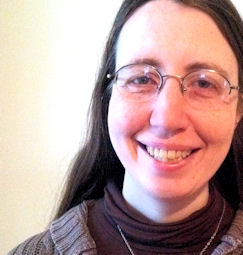
In July I attended an online class Google offered called “Power Searching with Google.” The class reminded me of a bunch of tricks to Google searching, and taught me some new ones as well. Here are a few that I think will be useful for prospect researchers.
Patent searching
If the prospect that you are researching has been involved in research and you want to gather information on what patents she may hold, Google can help with that. On the left hand panel in the search page, under the word “Shopping” click on the word “More”. The list will expand and you will see “Patents”. Now you can search for your prospect’s name and Google will find patents that contain that name.
Site and Filetype Operators
These operators allow you to narrow your search significantly. The site operator confines your search to one website or domain. For example:
“Jazzy Jay Jefferson” Site:Stanford.edu
…would produce only results that included Jazzy Jay Jefferson on the Stanford.edu website.
“Jazzy Jay Jefferson” Site:.edu
…would find every instance of Jazzy Jay Jefferson on every website that ended in “.edu”.
The filetype operator confines your search to a type of file. For example:
“Jazzy Jay Jefferson” Filetype:pdf
…would produce only results that include Jazzy Jay Jefferson and are PDF documents. (Think: online donor recognition reports!)
Date Range Limiting
If your prospect created a great deal of news in 2008 because of a controversy that you already have sufficient information about and you are now only interested in search results that give you information about your prospect from 2009 to the present, Google offers date range limiting. On the left hand panel of the search page at the bottom is the option “Show search tools.” Once clicked on, the first option is for date range. I can search SlideShare founder “Rashmi Sinha”, click “Show search tools”, select “Custom range”, enter 2009 to 2012, and receive search results from that time frame only.
Search Translated Foreign Pages
If your prospect is an immigrant from or has an interest in a company from another country, you can try to find more information by using the Translated Foreign Pages search function. Type in your search keywords, go to the left hand panel, select “Show Search Tools”, and then select “Translated Foreign Pages”. This will bring up searches for your prospect in available translated pages. You can customize the languages you wish to look through at the top of the search page once you have made the search request.
Conversions
This one is clearly not just for prospect researchers. I can never remember the correct ways to convert feet into meters, for example. Google has a really neat tool that does that for you. Enter “16 feet in meters” into the search box and it immediately gives you the answer (4.8768, just in case you were curious). You can use Google to convert any measurement as long as you use the formula “Number units in units.”
I hope you found these top tips informative, or at least a helpful refresher!
About the Author, Kate Rapoport:
Kate graduated from Smith College with a B.A. in Women’s Studies. She began her career in non-profit administration, became a mother and now, at Aspire Research Group LLC, applies her intelligence and curiosity to preparing prospect profiles that tell the stories that lead to major gifts.